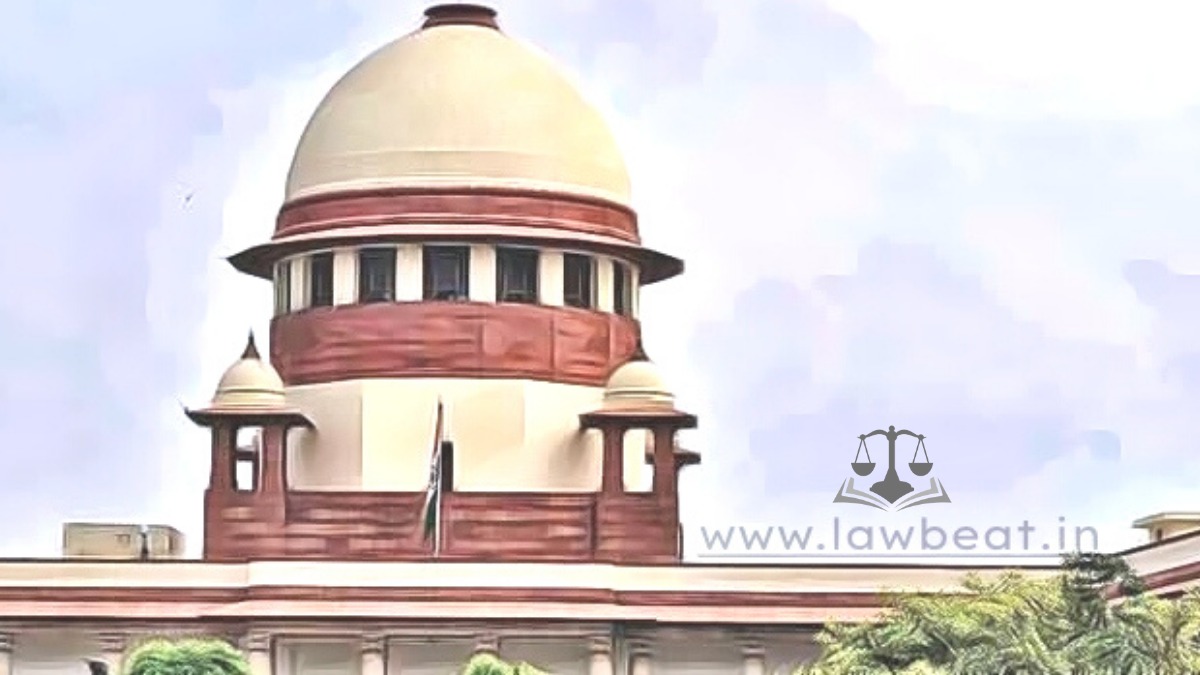SC dismisses plea seeking uniform age of marriage for Men & Women

In his plea, Upadhyay stated that while men are permitted to marry at the age of 21 years, women are permitted to marry at 18. This, he stated is based on certain stereotypes and completely nullifies what has been envisaged in the International Human Rights obligations.
A CJI Chandrachud led bench of the Supreme Court today dismissed a plea which sought uniform age of marriage for both men & women.
"These are matters of legislative amendment, why should we hear it...", the CJI remarked when the matter was taken up.
When Advocate Ashwini Upadhyay told court that legislation had already been introduced, CJI Chandrachud asked him, "Then why are you pressing it.. its crowding our board.. let parliament decide."
"Mere striking down of the provision fixing age of marriage will not serve the purpose as it will result in there being no minimum age. We decline to entertain the petition, as this falls under legislative domain", the bench thus ordered.
Recently, Supreme Court had allowed a plea seeking transfer of petitions pending before the Rajasthan High Court & Delhi High Court which sought uniform age of marriage for both men & women.
In February 2021, a bench of then Chief Justice SA Bobde, Justices AS Bopanna & V. Ramasubramanian had issued notice to the Centre in the plea filed on behalf of Ashwani Kumar Upadhyay.
In his plea, Upadhyay stated that while men are permitted to marry at the age of 21 years, women are permitted to marry at 18. This, he stated is based on certain stereotypes and completely nullifies what has been envisaged in the International Human Rights obligations. He contended that discriminatory provisions should be read down to equalise minimum age of marriage for both men and women at 21 years in light of the global trends that point in this direction.
The plea also stated that India ratified the Convention on the Elimination of All Forms of Discrimination Against Women ("CEDAW") in 1993 in and in terms of the same and India is obligated to "take all appropriate measures… to modify social and cultural patterns of conduct of men and women, with a view to achieving the elimination of prejudices and customary and all other practices which are based on the idea of inferiority or the superiority of either of the sexes or on stereotyped roles for men and women."
Furthermore, the petition highlighted the provisions under various legislations which stipulate the age of marriage as being discriminatory as following:
Section 60(1) of the Indian Christian Marriage Act, 1872;
Section 3(1)(c) of the Parsi Marriage and Divorce Act, 1936;
Section 4(c) of the Special Marriage Act, 1954;
Section 5(iii) of the Hindu Marriage Act, 1955;
Section 2(a) of the Prohibition of Child Marriage Act, 2006.
"This difference in stipulated age of marriage for men and women is based on on patriarchal stereotypes, has no scientific backing, perpetrates de jure and de facto inequality against women, and goes completely against the global trends," the petitioner stated.
Case Title: Ashwini Kumar Upadhyay vs. Union of India
